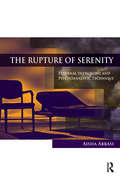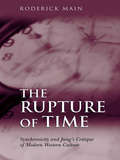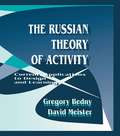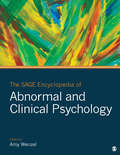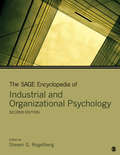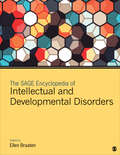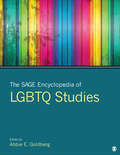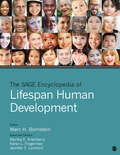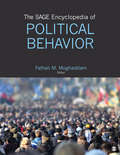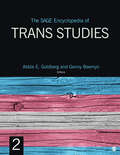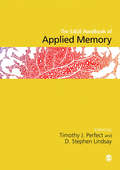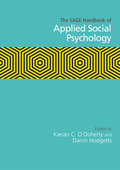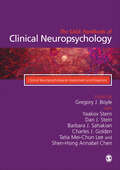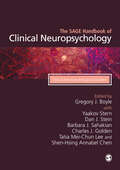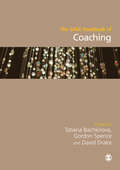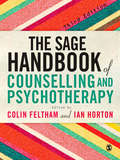- Table View
- List View
The Rupture of Serenity: External Intrusions and Psychoanalytic Technique
by Aisha AbbasiWhat happens when the outside world enters the psychoanalytic space? In The Rupture of Serenity: External Intrusions and Psychoanalytic Technique, the author draws on clinical material to describe some of the dilemmas she has encountered in her work with patients when external factors have entered the treatment frame. She considers analytic dilemmas that range from how to deal with patients' unusual requests regarding the conduct of an analytic treatment to the question of how to handle events in the analyst's personal life that, by necessity, must be addressed in the analysis. As a Muslim of Pakistani origin, the author is also able to discuss, frankly and with compassion, the role that ethnic and religious differences between patient and analyst can play in treatment-differences that, in the aftermath of 9/11 and the search for and killing of Osama bin Laden, became a palpable presence in her consulting room.
The Rupture of Time: Synchronicity and Jung's Critique of Modern Western Culture
by Roderick MainWhy was the idea of synchronicity so important to Jung?Jung's theory of synchronicity radically challenges the entrenched assumptions of mainstream modern culture in the West. It is one of the most fascinating yet difficult and discomfiting of Jung's psychological theories.The Rupture of Time aims to clarify what Jung really meant by synchronicity, why the idea was so important to him and how it informed his thinking about modern western culture. Areas examined include:* how the theory fits into Jung's overall psychological model and the significance of its apparent inconsistencies * the wide range of personal, intellectual and social contexts of Jung's thinking on the topic * how Jung himself applied the theory of synchronicity within his critique of science, religion, and society * the continuing relevance of the theory for understanding issues in contemporary detraditionalised religion. Focusing closely on Jung's own writings and statements, this book discloses that the theory of synchronicity is not an inconsequential addendum to analytical psychology but is central to the psychological project that occupied Jung throughout his professional life. This much-needed clarification of one of Jung's central tenets will be of great interest to all analytical psychologists and scholars engaged with Jungian thought.
The Russian Theory of Activity: Current Applications To Design and Learning (Applied Psychology Series)
by David Meister Gregory BednyThe opening of the former Soviet Union to the West has provided an opportunity to describe Russian human factors/ergonomics and to compare American theories and methods with it. Although this book is principally dedicated to describing the theory of activity as it applies to issues of design and training, it is also offered to a general audience of psychologists and interested lay readers. This theory studies the goal-directed behavior of man and attempts to integrate the cognitive, motivational, and behavioral aspects of activity into a holistic system. Such fundamental notions as goal, action, and self-regulation are described and analyzed from totally different theoretical points of view. This is the first comprehensive, systematic description of the theory of activity in the English language. Existing attempts to translate the theory of activity into English suffer from certain limitations. Among them, the theory of activity -- considered one of the more important accomplishments of Soviet psychological science -- has an extensive history dating back to the work of Vygotsky and his students. Subsequent development of the theory by other well-known Soviet psychologists and psychophysiologists took place within different schools with some significant differences. In the former Soviet Union, psychological theory could not be advanced unconnected to Marxist-Leninist ideology. Accordingly, theoretical formulations were subject to their own version of "political correctness." Books published in this field were addressed only to other scientists with backgrounds in the field. Moreover, the translation of the technical terms in Russian psychology frequently resist translation in the absence of the context of the debates in which they were being used. Thus, simple translation of books in this field as they were written in a specialized and politicized environment for Russian audiences is really not a particularly sensible or worthwhile undertaking. This book is addressed in the first instance to Western psychologists. It compares, among other things, analyses of work from the former Soviet Union with the work from the West. Applications of activity theory to design and learning were paramount in the Soviet Union. Using their own theoretical perspective, the authors provide a comparative analysis of the various schools working in activity theory. They hope that this book may facilitate the exchange of ideas between Russian psychological scientists and Western psychologists working in ergonomics, human factors, industrial/organizational psychology, education, learning, and related areas where the theory of activity may find general application. This book's authors attempt to provide a contribution not only to science but also to history. Western researchers have strongly influenced Russian work, but because of negative political pressure in the former USSR, the flow of concepts was one-sided. Russian ergonomists received so much from American and Western sources that it is now important to give something back. Despite the considerable similarity between Russian and American theories and methods, the special "spin" the former put on their work may stimulate new thinking on the part of their American colleagues.
The SAGE Encyclopedia of Abnormal and Clinical Psychology
by Amy E. WenzelAbnormal and clinical psychology courses are offered in psychology programs at universities worldwide, but the most recent major encyclopedia on the topic was published many years ago. Although general psychology handbooks and encyclopedias include essays on abnormal and clinical psychology, such works do not provide students with an accessible reference for understanding the full scope of the field. The SAGE Encyclopedia of Abnormal and Clinical Psychology, a 7-volume, A-Z work (print and electronic formats), will be such an authoritative work. Its more than 1,400 entries will provide information on fundamental approaches and theories, various mental health disorders, assessment tools and psychotherapeutic interventions, and the social, legal, and cultural frameworks that have contributed to debates in abnormal and clinical psychology. Key features include: 1,400 signed articles contained in 7 volumes and available in choice of print and/or electronic formats although organized A-to-Z, front matter includes a Reader’s Guide grouping related entries thematically back matter includes a Chronology, Resource Guide, Bibliography, and detailed Index entries conclude with References/Further Readings and Cross References to related entries the Index, Reader’s Guide themes, and Cross References between and among entries all combine to provide robust search-and-browse features in the electronic version.
The SAGE Encyclopedia of Industrial and Organizational Psychology
by Steven G. RogelbergThe well-received first edition of the Encyclopedia of Industrial and Organizational Psychology (2007, 2 vols) established itself in the academic library market as a landmark reference that presents a thorough overview of this cross-disciplinary field for students, researchers, and professionals in the areas of psychology, business, management, and human resources. Nearly ten years later, SAGE presents a thorough revision that both updates current entries and expands the overall coverage, adding approximately 200 new articles, expanding from two volumes to four. Examining key themes and topics from within this dynamic and expanding field of psychology, this work offers a truly cross-cultural and global perspective.
The SAGE Encyclopedia of Intellectual and Developmental Disorders
by Ellen B. BraatenAccording to the CDC "about one in six, or about 15%, of children aged 3 through 17 years have one or more developmental disabilities," such as ADHD, autism spectrum disorders, cerebral palsy, intellectual disability, and learning disability. Intellectual disorders are characterized by significant limitations in both intellectual functioning and in adaptive behavior, which covers many everyday social and practical skills, impacting learning, reasoning, problem solving, and other cognitive processes. These disabilities originate before the age of 18 and continue across the life span. Developmental disorders are chronic disabilities that can be cognitive or physical or both. The disabilities appear before the age of 22 and are likely to progress across the lifespan. Some developmental disorders are largely physical issues, such as cerebral palsy or epilepsy. Some individuals may have a disorder that includes a physical and intellectual disability; for example, Down syndrome or fetal alcohol syndrome. Intellectual and developmental disorders are significant and growing issues that are studied across a number of disciplines. The SAGE Encyclopedia of Intellectual and Developmental Disorders is aimed at students interested in psychology, counseling, education, social work, psychiatry, health sciences, and more. This encyclopedia will provide an in-depth look at a wide range of disorders, alongside interventions, the latest research translated for an undergraduate audience, historical context, and assessment tools for higher-level students. We will take a truly interdisciplinary approach by also covering sociocultural viewpoints, policy implications, educational applications, ethical issues, and more.
The SAGE Encyclopedia of Intellectual and Developmental Disorders
by Ellen B. BraatenAccording to the CDC "about one in six, or about 15%, of children aged 3 through 17 years have one or more developmental disabilities," such as ADHD, autism spectrum disorders, cerebral palsy, intellectual disability, and learning disability. Intellectual disorders are characterized by significant limitations in both intellectual functioning and in adaptive behavior, which covers many everyday social and practical skills, impacting learning, reasoning, problem solving, and other cognitive processes. These disabilities originate before the age of 18 and continue across the life span. Developmental disorders are chronic disabilities that can be cognitive or physical or both. The disabilities appear before the age of 22 and are likely to progress across the lifespan. Some developmental disorders are largely physical issues, such as cerebral palsy or epilepsy. Some individuals may have a disorder that includes a physical and intellectual disability; for example, Down syndrome or fetal alcohol syndrome. Intellectual and developmental disorders are significant and growing issues that are studied across a number of disciplines. The SAGE Encyclopedia of Intellectual and Developmental Disorders is aimed at students interested in psychology, counseling, education, social work, psychiatry, health sciences, and more. This encyclopedia will provide an in-depth look at a wide range of disorders, alongside interventions, the latest research translated for an undergraduate audience, historical context, and assessment tools for higher-level students. We will take a truly interdisciplinary approach by also covering sociocultural viewpoints, policy implications, educational applications, ethical issues, and more.
The SAGE Encyclopedia of LGBTQ Studies
by Abbie E. GoldbergThis far-reaching and contemporary new Encyclopedia examines and explores the lives and experiences of Lesbian, Gay, Bisexual, Transgender and Queer (LGBTQ) individuals, focusing on the contexts and forces that shape their lives. The work focuses on LGBTQ issues and identity primarily through the lenses of psychology, human development and sociology, emphasizing queer, feminist and ecological perspectives on the topic, and addresses questions such as: · What are the key theories used to understand variations in sexual orientation and gender identity? · How do Gay-Straight Alliances (GSA) affect LGBTQ youth? · How do LGBTQ people experience the transition to parenthood? · How does sexual orientation intersect with other key social locations, such as race, to shape experience and identity? · What are the effects of marriage equality on sexual minority individuals and couples? Top researchers and clinicians contribute to the 400 signed entries, from fields such as: · Psychology · Human Development · Gender/Queer Studies · Sexuality Studies · Social Work · Sociology The SAGE Encyclopedia of LGBTQ Studies is an essential resource for researchers interested in an interdisciplinary perspective on LGBTQ lives and issues.
The SAGE Encyclopedia of LGBTQ Studies
by Abbie E. GoldbergThis far-reaching and contemporary new Encyclopedia examines and explores the lives and experiences of Lesbian, Gay, Bisexual, Transgender and Queer (LGBTQ) individuals, focusing on the contexts and forces that shape their lives. The work focuses on LGBTQ issues and identity primarily through the lenses of psychology, human development and sociology, emphasizing queer, feminist and ecological perspectives on the topic, and addresses questions such as: · What are the key theories used to understand variations in sexual orientation and gender identity? · How do Gay-Straight Alliances (GSA) affect LGBTQ youth? · How do LGBTQ people experience the transition to parenthood? · How does sexual orientation intersect with other key social locations, such as race, to shape experience and identity? · What are the effects of marriage equality on sexual minority individuals and couples? Top researchers and clinicians contribute to the 400 signed entries, from fields such as: · Psychology · Human Development · Gender/Queer Studies · Sexuality Studies · Social Work · Sociology The SAGE Encyclopedia of LGBTQ Studies is an essential resource for researchers interested in an interdisciplinary perspective on LGBTQ lives and issues.
The SAGE Encyclopedia of Lifespan Human Development
by Marc H. BornsteinLifespan human development is the study of all aspects of biological, physical, cognitive, socioemotional, and contextual development from conception to the end of life. In approximately 800 signed articles by experts from a wide diversity of fields, The SAGE Encyclopedia of Lifespan Human Development explores all individual and situational factors related to human development across the lifespan. Some of the broad thematic areas will include: Adolescence and Emerging Adulthood Aging Behavioral and Developmental Disorders Cognitive Development Community and Culture Early and Middle Childhood Education through the Lifespan Genetics and Biology Gender and Sexuality Life Events Mental Health through the Lifespan Research Methods in Lifespan Development Speech and Language Across the Lifespan Theories and Models of Development. This five-volume encyclopedia promises to be an authoritative, discipline-defining work for students and researchers seeking to become familiar with various approaches, theories, and empirical findings about human development broadly construed, as well as past and current research.
The SAGE Encyclopedia of Lifespan Human Development
by Marc H. BornsteinLifespan human development is the study of all aspects of biological, physical, cognitive, socioemotional, and contextual development from conception to the end of life. In approximately 800 signed articles by experts from a wide diversity of fields, The SAGE Encyclopedia of Lifespan Human Development explores all individual and situational factors related to human development across the lifespan. Some of the broad thematic areas will include: Adolescence and Emerging Adulthood Aging Behavioral and Developmental Disorders Cognitive Development Community and Culture Early and Middle Childhood Education through the Lifespan Genetics and Biology Gender and Sexuality Life Events Mental Health through the Lifespan Research Methods in Lifespan Development Speech and Language Across the Lifespan Theories and Models of Development. This five-volume encyclopedia promises to be an authoritative, discipline-defining work for students and researchers seeking to become familiar with various approaches, theories, and empirical findings about human development broadly construed, as well as past and current research.
The SAGE Encyclopedia of Political Behavior
by Fathali M. MoghaddamThe SAGE Encyclopedia of Political Behavior explores the intersection of psychology, political science, sociology, communications, and human behavior to better understand why and how people interact with political processes. Bringing together scholars from around the world, the encyclopedia integrates theories, research, and case studies from a variety of disciplines to help readers better understand the complexities of political behavior. Contributors analyze the forces that shape the behavior of individuals, groups, and social movements and how that behavior impacts political outcomes and public policy debates. In over 360 entries, the encyclopedia focuses broadly on the following topics: Cognitive processes Group identities and influence Individual political behavior International/comparative perspectives Justice and political behavior Media, discourse, and communications Policies and political behavior Political systems Security and terrorism Social political movements Theories of political behavior Voting behavior and political campaigns Aimed at college and university students, this one-of-a-kind reference covers voting patterns, interactions between groups, what makes different types of government systems appealing to different societies, and the impact of early childhood development on political beliefs, among others. Topics explored by political psychologists are of great interest in fields beyond either psychology or political science, with implications, for instance, within business and management. This title will be available online on SAGE Knowledge, the ultimate social sciences library.
The SAGE Encyclopedia of Political Behavior
by Fathali M. MoghaddamThe SAGE Encyclopedia of Political Behavior explores the intersection of psychology, political science, sociology, communications, and human behavior to better understand why and how people interact with political processes. Bringing together scholars from around the world, the encyclopedia integrates theories, research, and case studies from a variety of disciplines to help readers better understand the complexities of political behavior. Contributors analyze the forces that shape the behavior of individuals, groups, and social movements and how that behavior impacts political outcomes and public policy debates. In over 360 entries, the encyclopedia focuses broadly on the following topics: Cognitive processes Group identities and influence Individual political behavior International/comparative perspectives Justice and political behavior Media, discourse, and communications Policies and political behavior Political systems Security and terrorism Social political movements Theories of political behavior Voting behavior and political campaigns Aimed at college and university students, this one-of-a-kind reference covers voting patterns, interactions between groups, what makes different types of government systems appealing to different societies, and the impact of early childhood development on political beliefs, among others. Topics explored by political psychologists are of great interest in fields beyond either psychology or political science, with implications, for instance, within business and management. This title will be available online on SAGE Knowledge, the ultimate social sciences library.
The SAGE Encyclopedia of Trans Studies
by Abbie E. Goldberg Genny BeemynTransgender studies, broadly defined, has become increasingly prominent as a field of study over the past several decades, particularly in the last ten years. The experiences and rights of trans people have also increasingly become the subject of news coverage, such as the ability of trans people to access restrooms, their participation in the military, the issuing of driver’s licenses that allow a third gender option, the growing visibility of nonbinary trans teens, the denial of gender-affirming health care to trans youth, and the media’s misgendering of trans actors. With more and more trans people being open about their gender identities, doctors, nurses, psychologists, social workers, counselors, educators, higher education administrators, student affairs personnel, and others are increasingly working with trans individuals who are out. But many professionals have little formal training or awareness of the life experiences and needs of the trans population. This can seriously interfere with open communications between trans people and service providers and can negatively impact trans people’s health outcomes and well-being, as well as interfere with their educational and career success and advancement. Having an authoritative, academic resource like The SAGE Encyclopedia of Trans Studies can go a long way toward correcting misconceptions and providing information that is otherwise not readily available. This encyclopedia, featuring more than 300 well-researched articles, takes an interdisciplinary and intersectional approach to trans studies. Entries address a wide range of topics, from broad concepts (e.g., the criminal justice system, activism, mental health), to specific subjects (e.g., the trans pride flag, the Informed Consent Model, voice therapy), to key historical figures, events, and organizations (e.g., Lili Elbe, the Stonewall Riots, Black Lives Matter). Entries focus on diverse lives, identities, and contexts, including the experiences of trans people in different racial, religious, and sexual communities in the United States and the variety of ways that gender is expressed in other countries. Among the fields of studies covered are psychology, sociology, history, family studies, K-12 and higher education, law/political science, medicine, economics, literature, popular culture, the media, and sports.
The SAGE Encyclopedia of Trans Studies
by Abbie E. Goldberg Genny BeemynTransgender studies, broadly defined, has become increasingly prominent as a field of study over the past several decades, particularly in the last ten years. The experiences and rights of trans people have also increasingly become the subject of news coverage, such as the ability of trans people to access restrooms, their participation in the military, the issuing of driver’s licenses that allow a third gender option, the growing visibility of nonbinary trans teens, the denial of gender-affirming health care to trans youth, and the media’s misgendering of trans actors. With more and more trans people being open about their gender identities, doctors, nurses, psychologists, social workers, counselors, educators, higher education administrators, student affairs personnel, and others are increasingly working with trans individuals who are out. But many professionals have little formal training or awareness of the life experiences and needs of the trans population. This can seriously interfere with open communications between trans people and service providers and can negatively impact trans people’s health outcomes and well-being, as well as interfere with their educational and career success and advancement. Having an authoritative, academic resource like The SAGE Encyclopedia of Trans Studies can go a long way toward correcting misconceptions and providing information that is otherwise not readily available. This encyclopedia, featuring more than 300 well-researched articles, takes an interdisciplinary and intersectional approach to trans studies. Entries address a wide range of topics, from broad concepts (e.g., the criminal justice system, activism, mental health), to specific subjects (e.g., the trans pride flag, the Informed Consent Model, voice therapy), to key historical figures, events, and organizations (e.g., Lili Elbe, the Stonewall Riots, Black Lives Matter). Entries focus on diverse lives, identities, and contexts, including the experiences of trans people in different racial, religious, and sexual communities in the United States and the variety of ways that gender is expressed in other countries. Among the fields of studies covered are psychology, sociology, history, family studies, K-12 and higher education, law/political science, medicine, economics, literature, popular culture, the media, and sports.
The SAGE Handbook of Applied Memory
by D Stephen Lindsay Timothy J Perfect"A fabulous collection of essays on memory in the real world. The leading scholars have been assembled to produce a volume that is intellectually rich, up-to-date, and truly important." - Elizabeth F. Loftus, Distinguished Professor, University of California, Irvine "An invaluable resource for anyone wishing to access the current state of knowledge of, or contemplating research into, the growing area of applied memory research." - Graham Davies, Editor, Applied Cognitive Psychology The SAGE Handbook of Applied Memory is the first of its kind to focus specifically on this vibrant and progressive field. It offers a broad and comprehensive coverage of recent theoretical and empirical research advances in the psychology of memory as they apply to a range of applied issues, and offers advanced students and researchers the opportunity to survey the literature in the psychology of memory across a range of applied domains. Arranged into four sections: Everyday Memory; Social and Individual Differences in Memory; Subjective Experience of Memory; and Eyewitness Memory, this handbook provides a comprehensive summary and evaluation of scientific memory research as well as theory in a broad range of applied topics including those in cognitive, forensic and experimental psychology. Brought together by world-leading scholars from across the globe, The SAGE Handbook of Applied Memory will be of great interest to all advanced students and academics with an interest in all aspects of applied memory.
The SAGE Handbook of Applied Social Psychology
by Darrin Hodgetts Kieran C. O'DohertyIn the present epoch of global change, movement, interconnection and the intensification of social issues within and across many societies, applied social psychology is more relevant than ever. The SAGE Handbook of Applied Social Psychology offers an overview of the field and the disparate and evolving approaches. Through an international team of contributors, the handbook brings prominent research literature together and organises it around ten key areas: Part 01: Culture, race, indigeneity Part 02: Gender & Sexuality Part 03: Politics Part 04: Health and mental health Part 05: Work Part 06: Ageing Part 07: Communication Part 08: Education Part 09: Environment Part 10: Criminal Justice, Law, & Crime This handbook is a uniting and invigorating resource for the field of Applied Social Psychology.
The SAGE Handbook of Applied Social Psychology
by Darrin Hodgetts Kieran C. O'DohertyIn the present epoch of global change, movement, interconnection and the intensification of social issues within and across many societies, applied social psychology is more relevant than ever. The SAGE Handbook of Applied Social Psychology offers an overview of the field and the disparate and evolving approaches. Through an international team of contributors, the handbook brings prominent research literature together and organises it around ten key areas: Part 01: Culture, race, indigeneity Part 02: Gender & Sexuality Part 03: Politics Part 04: Health and mental health Part 05: Work Part 06: Ageing Part 07: Communication Part 08: Education Part 09: Environment Part 10: Criminal Justice, Law, & Crime This handbook is a uniting and invigorating resource for the field of Applied Social Psychology.
The SAGE Handbook of Clinical Neuropsychology: Clinical Neuropsychological Assessment and Diagnosis
by Dan J. Stein Charles J. Golden Barbara J. Sahakian Yaakov Stern Shen-Hsing Annabel Chen Gregory J. Boyle Tatia Mei-Chun LeeClinical Neuropsychology is a vast and varied field that focuses on the treatment, assessment and diagnosis of a range of cognitive disorders through a study and understanding of neuroanatomy and the relationship between the brain and human behavior. This handbook focuses on the assessment, diagnosis and rehabilitation of cognitive disorders. It provides in-depth coverage on a variety of content, including psychometrics, neuropsychological test batteries (computer based cognitive assessment systems) and assessment applications. This handbook is vital for clinical neuropsychologists and postgraduate students and researchers hoping to apply a knowledge of neuropsychology to clinical settings and effectively assess, diagnose and treat patients suffering from cognitive disorders. PART I BACKGROUND CONSIDERATIONS PART II DOMAIN-SPECIFIC NEUROPSYCHOLOGICAL MEASURES PART III GENERAL COGNITIVE TEST BATTERIES PART IV LEGACY NEUROPSYCHOLOGICAL TEST BATTERIES PART V COMPUTERISED BATTERIES, TECHNOLOGICAL ADVANCES AND TELENEUROPSYCHOLOGY PART VI NEUROPSYCHOLOGICAL ASSESSMENT APPLICATIONS
The SAGE Handbook of Clinical Neuropsychology: Clinical Neuropsychological Assessment and Diagnosis
by Dan J. Stein Charles J. Golden Barbara J. Sahakian Yaakov Stern Shen-Hsing Annabel Chen Gregory J. Boyle Tatia Mei-Chun LeeClinical Neuropsychology is a vast and varied field that focuses on the treatment, assessment and diagnosis of a range of cognitive disorders through a study and understanding of neuroanatomy and the relationship between the brain and human behavior. This handbook focuses on the assessment, diagnosis and rehabilitation of cognitive disorders. It provides in-depth coverage on a variety of content, including psychometrics, neuropsychological test batteries (computer based cognitive assessment systems) and assessment applications. This handbook is vital for clinical neuropsychologists and postgraduate students and researchers hoping to apply a knowledge of neuropsychology to clinical settings and effectively assess, diagnose and treat patients suffering from cognitive disorders. PART I BACKGROUND CONSIDERATIONS PART II DOMAIN-SPECIFIC NEUROPSYCHOLOGICAL MEASURES PART III GENERAL COGNITIVE TEST BATTERIES PART IV LEGACY NEUROPSYCHOLOGICAL TEST BATTERIES PART V COMPUTERISED BATTERIES, TECHNOLOGICAL ADVANCES AND TELENEUROPSYCHOLOGY PART VI NEUROPSYCHOLOGICAL ASSESSMENT APPLICATIONS
The SAGE Handbook of Clinical Neuropsychology: Clinical Neuropsychological Disorders
by Dan J. Stein Charles J. Golden Barbara J. Sahakian Yaakov Stern Shen-Hsing Annabel Chen Gregory J. Boyle Tatia Mei-Chun LeeClinical Neuropsychology is a vast and varied field that focuses on the treatment, assessment and diagnosis of a range of cognitive disorders through a study and understanding of neuroanatomy and the relationship between the brain and human behavior. This handbook focuses on specific Neuropsychological disorders. It covers each of the classification systems involved before moving on to specific types of disorders from neurodevelopmental to neuropathological as well as brain injuries, trauma and neurodegenerative disorders. This handbook not only provides an in-depth overview of these Neuropsychological disorders, but also explores the history of the field as well its global challenges. The handbook is an essential tool for clinicians and scientists, as well as postgraduate students and researchers in a range of disciplines exploring the area. PART I BACKGROUND CONSIDERATIONS PART II NEURODEVELOPMENTAL DISORDERS PART III NEUROLOGICAL DISORDERS PART IV NEUROCOGNITIVE DISORDERS PART V TRAUMATIC BRAIN INJURY PART VI PSYCHIATRIC DISORDERS
The SAGE Handbook of Clinical Neuropsychology: Clinical Neuropsychological Disorders
by Dan J. Stein Charles J. Golden Barbara J. Sahakian Yaakov Stern Shen-Hsing Annabel Chen Gregory J. Boyle Tatia Mei-Chun LeeClinical Neuropsychology is a vast and varied field that focuses on the treatment, assessment and diagnosis of a range of cognitive disorders through a study and understanding of neuroanatomy and the relationship between the brain and human behavior. This handbook focuses on specific Neuropsychological disorders. It covers each of the classification systems involved before moving on to specific types of disorders from neurodevelopmental to neuropathological as well as brain injuries, trauma and neurodegenerative disorders. This handbook not only provides an in-depth overview of these Neuropsychological disorders, but also explores the history of the field as well its global challenges. The handbook is an essential tool for clinicians and scientists, as well as postgraduate students and researchers in a range of disciplines exploring the area. PART I BACKGROUND CONSIDERATIONS PART II NEURODEVELOPMENTAL DISORDERS PART III NEUROLOGICAL DISORDERS PART IV NEUROCOGNITIVE DISORDERS PART V TRAUMATIC BRAIN INJURY PART VI PSYCHIATRIC DISORDERS
The SAGE Handbook of Coaching
by Tatiana Bachkirova Dr David Drake Gordon SpenceThe SAGE Handbook of Coaching presents a comprehensive, global view of the discipline, identifying the current issues and practices, as well as mapping out where the discipline is going. The Handbook is organized into six thematic sections: Part One: Positioning Coaching as a Discipline Part Two: Coaching as a Process Part Three: Common Issues in Coaching Part Four: Coaching in Contexts Part Five: Researching Coaching Part Six: Development of Coaches It provides the perfect reference point for graduate students, scholars, educators and researchers wishing to familiarize themselves with current research and debate in the academic and influential practitioners' literature on coaching.
The SAGE Handbook of Coaching
by Tatiana Bachkirova Dr David Drake Gordon SpenceThe SAGE Handbook of Coaching presents a comprehensive, global view of the discipline, identifying the current issues and practices, as well as mapping out where the discipline is going. The Handbook is organized into six thematic sections: Part One: Positioning Coaching as a Discipline Part Two: Coaching as a Process Part Three: Common Issues in Coaching Part Four: Coaching in Contexts Part Five: Researching Coaching Part Six: Development of Coaches It provides the perfect reference point for graduate students, scholars, educators and researchers wishing to familiarize themselves with current research and debate in the academic and influential practitioners' literature on coaching.
The SAGE Handbook of Counselling and Psychotherapy
by Colin Feltham Ian HortonThis long-awaited third edition brings together the fundamentals of counselling and psychotherapy theory, research, skills and practice. It addresses what every successful trainee or practitioner needs to know, do, think, feel, and use in a way that is entirely comprehensive, accessible and jargon-free.<P><P> Including new material on interpersonal psychotherapy, cognitive analytic therapy, pluralistic therapy and mindfulness, as well as body psychotherapy, hypnotherapy, Asperger Syndrome, ADHD, and low self-esteem, this book continues to be essential reading for trainees or experienced practitioners alike.<P> Colin Feltham is Emeritus Professor of Critical Counselling Studies, Sheffield Hallam University, Fellow of the British Association for Counselling and Psychotherapy, BACP Senior Registered Practitioner and former co- editor of the British Journal for Guidance and Counselling.<P> Ian Horton is now retired and was Principal Lecturer in Counselling and Psychotherapy at University of East London, Chair of the UKRC Executive, a BACP accredited counsellor and UKRC registered independent counsellor. He is a fellow of the BACP.
